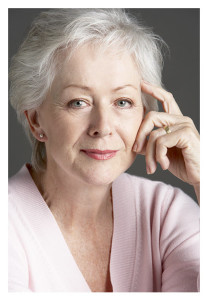 I ran into remarks recently that express an old, familiar prejudice. I suppose I shouldn’t be surprised, but I am. And here it is: the belief that people who are overweight are lazy and undisciplined.
I ran into remarks recently that express an old, familiar prejudice. I suppose I shouldn’t be surprised, but I am. And here it is: the belief that people who are overweight are lazy and undisciplined.
Seriously? Walk in my shoes, baby…
Just wait until “she” deals with post-pregnancy pounds at 40, or when menopause hits.
Let’s see if “he” is so callous when he finds himself sidelined by injury or illness, unable to exercise, and sporting a seemingly unbanishable belly at 50 — and that, despite “disciplined” eating.
Attributing character to physical characteristics?
Yup. That pisses me off.
Bias? Take Your Pick
Here’s another one I’ve run into: “It’s silly to say that women make less money than men. If they do, you can’t blame the system. It’s their own doing.”
That viewpoint?
I’ve heard it from young women, and occasionally, from ignorant older men.
Like I said: Walk in my shoes. Walk in the shoes of most women who aren’t women of means, who’ve had children, and continue to work to earn their keep. And look at data on the gender pay gap.
Here’s an oldie that’s alive and well: “She asked for it… If he got sexually aggressive with her, she must have provoked it. And she didn’t mean it when she told him to stop.”
Wrong. So totally wrong.
Must a man find himself cornered and overpowered by someone bigger and stronger, someone invading his most personal space, before he understands this particular fear and outrage?
So why is it that some of us have to experience something for ourselves before we drop the disbelief and can the clueless judgments?
How Many Years for Reality to Sink In?
This article at The New York Times is relevant, though the context is political and ties back to systemic sexism. Why Sexism at the Office Makes Women Love Hillary Clinton touches on whether you need to experience a thing before fully believing in its existence, much less the extent of its influence.
The article refers to a “numbers” game when it comes to our jobs and our juggle…
… More time in a sexist world, and particularly in the workplace, radicalizes women… Radicalism… can also take the shape of women, increasingly disillusioned by a biased culture, throwing their weight behind someone who shares both their political views and their experiences.
I find radicalize to be a strong word in this context. However, the point is made. We come to understand the impact of certain phenomena, complex and nuanced phenomena, through our lived experience.
Do read the article. There’s a lot more to it, and it’s excellent.
Empathy, Assumptions
Some of us may go through life more willing to suspend assumptions, to observe attentively, to withhold judgments, and looking at situations from a multitude of angles. This doesn’t mean we don’t have opinions, but those opinions are informed by the many factors we come to see as we look for data, give people the benefit of the doubt, and don’t presume to know it all. And we give weight to the likelihood that we will know more tomorrow than we know today.
I recall being asked years ago for a few key points on what I learned after divorce, and in my life as a single mother. What came to mind immediately is a rule I try to apply in everything. And it’s as easy as can be.
Never assume.
The ability to stop ourselves from making assumptions may be harder for some than others. In particular, without having lived an experience, there will always be people who are quicker to judge or to diminish someone else’s reality.
Imagine, If You Will…
This diminishing approach is true for all the brands of bias that still hold us hostage as a country — racism, sexism, ageism, and more. This is true for those who are poor; don’t we render them invisible, and fall back on “Well, if I was able to do XYZ, why can’t they?”
 We apply the same dismissive handling to those who suffer chronic invisible illnesses, treated by the medical establishment as head cases. And likewise, the incidents that we may choose to sweep under the carpet, like unprovoked sexual aggression, or the ubiquitous shaming of the “fat” girl, or for that matter, the “ugly” one.
We apply the same dismissive handling to those who suffer chronic invisible illnesses, treated by the medical establishment as head cases. And likewise, the incidents that we may choose to sweep under the carpet, like unprovoked sexual aggression, or the ubiquitous shaming of the “fat” girl, or for that matter, the “ugly” one.
Oh, to drop Mr. Trump into the skin and circumstances of the people he would dismiss! And I wouldn’t mind a means to do the same for others: Dropping the naive young woman into her mother’s knowing perspective, or slipping a healthy 40-year-old physician into the body of a 50-something man battling cognitive impairment, pain, and fatigue.
Is this the only way to breed more acute awareness and that all-important empathy?
Our Life Stories
Obviously, there are many things we cannot fathom until we experience them for ourselves. Most of the extreme emotions would fit here, including romantic love and searing hate. I would wish much of the first on all of us, and little of the second.
Clearly, certain physical and mental conditions are challenging at best to explain. We might put pregnancy in this list (with a wide variety of experiences), or any number of types of physical pain, and we might also include depression.
Here’s where I am: Our lives are filled with ups and downs. With the years, our accumulated experience becomes our story, our set of stories. And candid, persuasive storytelling is an excellent tool for achieving some degree of teaching, and as a result, understanding.
Yet don’t those on the receiving end need to have an open mind? For the obtuse among us, are we left with the necessity of the sci-fi switcheroo?
Wisdom… Wherefore Art Thou?
Since a magical switch for a week or a month is impossible, how do we get through to others who cannot see beyond their own lived experience? Will some people never get it unless struck by terrible troubles, not of their making? Is their a way for them to wise up?
- Do you have to live it to think it’s real?
- Do you assume that others’ circumstances — physical, psychological, familial, financial — are similar to yours?
Can you look back from 40-something or 50-something or 60-something or older, and realize how many off-base judgments you made when you were younger? Are you still making them?
What do you think it would take to open your eyes — you, yourself, getting a taste of the experience, or perhaps someone close to you, like an adult child?
You May Also Enjoy
When I was younger, I was much more likely to make passing judgments, internally only. I was always careful not to vocalize my assumptions, but they were there. As I’ve grown and experienced so much that I could not have predicted, my eyes have been opened to my own careless prejudice. Yes, sometimes it took me walking through some of the very things I mistakenly assumed I could avoid: divorce, poverty, health issues.
I am grateful for the more broad perspective and the grace to assume there is always more than meets the eye and that I never know the whole story – especially when I don’t even know the person.
As Gaga sang last night, “Till it Happens to You…” Unfortunately, it seems humankind is slow to learn from the mistakes of others and it unfortunately requires personal humbling.
I suspect that many of us aren’t very introspective when it comes to how we form our opinions, as I often see people with incoherent (or at least apparently so) belief systems.
On one hand, I think it is fair to say that everyone thinks their situation and capabilities are special, that what applies to others doesn’t apply to them. After a while you have enough experiences similar to others to understand that their perspective might contain some wisdom, so over time you come to learn from them in advance, rather than retroactively.
So this is a process of learning through experience, and aging. I love Mark Twain’s quote – “When I was a boy of fourteen, my father was so ignorant I could hardly stand to have the old man around. But when I got to be twenty-one, I was astonished at how much he had learned in seven years.”
But it isn’t just aging. If I am a little less than charitable, I want to say that when something doesn’t square with our own frame of reference we sometimes have a “blame the victim” mentality. I recently saw a quote to the effect that what someone thinks about a situation says more about the viewer than the situation. I see that as true. As you say, this tends to be especially true in the allopathic medical community, when their discipline, or the physician’s individual level of knowledge, comes up short.
The situation in which I find the most internal inconsistency is in the “If I can do it, so can they” statements. That logically translates into “I am the least competent/most disadvantaged in the universe of people in this situation, but even incompetent me managed to prevail”. Do those who say this really believe they are that disadvantaged relative to everyone else, not to mention that if this holds true the correlation between abilities and results is exactly the opposite of what you would expect?
At a certain point I finally became self-aware enough to realize that some of my opinions were rooted in my emotional reactions. I would see something, have a strong reaction, then, essentially blame those involved for how *I* felt. Talk about egotism and blame shifting!
I finally figured out that, in the final analysis, my opinions about people really didn’t matter and it would be quite freeing to just let them go.
People need not walk in another man’s shoes to understand him. They must simply have empathy, kindness and be thoughtful. Unfortunately self absorbed navel gazing and easy stereotypical thinking gets in the way.
I think the old familiar prejudice that you have referenced in the first paragraph comes into play when gluttony related to eating is involved. That is undisciplined and repulsive to most sensible people. I concur with everything else that you wrote.